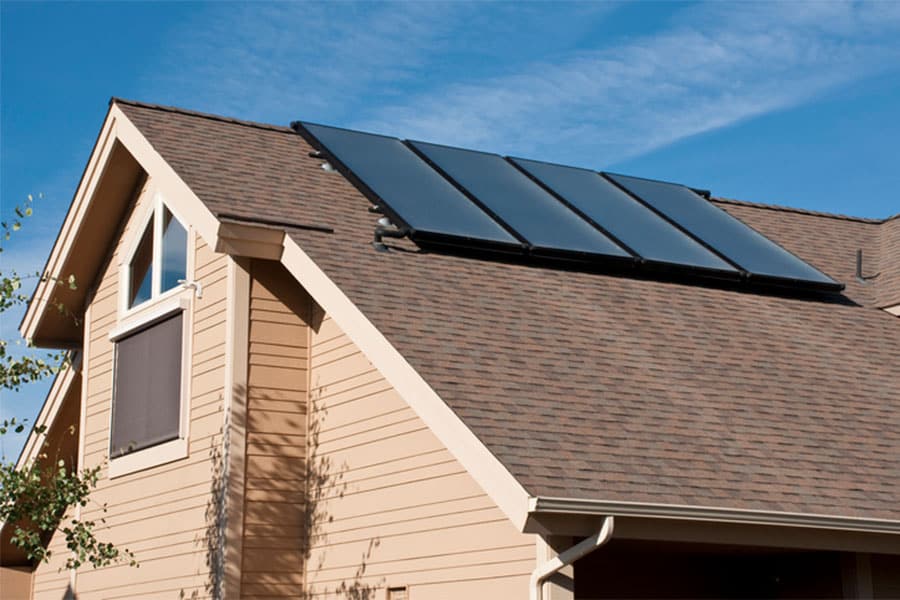Are you thinking about getting solar panels on your house? If so, they will likely be attached to a portion of your roof. Solar panels have tons of energy-saving benefits, but they are not ideal for all homeowners. We’re here to help you avoid a potentially costly mistake. Consider the following factors before installing solar panels on your roof.
How Long Do You Plan to Live at This House?
If your current house is your forever home, get the solar panels. If you have no intention of selling or moving in the next several years, you may actually see the benefits of converting to solar energy.
However, if you know you’re going to sell or rent out your house in the future, you may want to hold off on getting solar panels. This is because most solar panels come with a hefty loan that requires a long-term commitment. You could ask the buyer to absorb the loan as part of the purchase, but that may affect their ability to qualify for a home loan. Many buyers do not want the hassle of taking on someone else’s debt, which means you may have to pay off the solar panels at closing. If you don’t have enough equity in your home to cover that, you may be out of pocket for the difference.
What Financial or Logistical Challenges Will You Face If You Move the Solar Panels?
You’re probably thinking, “I can just move the panels to my new house!” But that’s not as easy as it seems. The solar panels are anchored into the decking of your roof. When they get removed, the roof deck is compromised. You can patch the shingles that have holes in them, but the decking below will continue to be compromised. The only way to truly reverse the installation is to get a new roof.
You’ll also have to pay a fee for removing/transporting the panels and installing them on the new house. Your electrical box will need to be converted back to its standard settings, and the box at the new house will need to be converted to solar energy. This can lead to thousands of dollars in extra expenses for a seemingly easy transition.
Will You Need Extra Insurance Coverage for the Solar Panels?
Not all home insurance policies cover solar panels by default. Thus, you may need a rider on your policy to cover the panels in the event of wind or hail damage. Talk to your insurance company to see how this may affect your policy before you get solar panels.
Will Solar Panels Add Value to Your House Based on Your Local Market?
The housing market varies throughout the country. In some areas, there is a high enough demand for solar energy to justify a price increase for your home. However, if you’re not in a market where solar panels are in high demand, you may not get any extra value for the thousands you spend on the solar panels. Be mindful of this if you plan to sell in the coming years.
Will the Solar Panel Placement Affect Your Curb Appeal?
Some people do not like the look of solar panels. If your panels have to be placed on the front of your home, you may not like the resulting curb appeal. Discuss different placement options to determine if you’re comfortable with where the panels are going to be.
Are Your Roof Materials Compatible with Solar Panels?
Last but not least, you need to figure out if your current roofing materials can support solar panels. Standard asphalt shingles are compatible with solar panels, but slate and tile roofs may not be. The last thing you want to do is commit to a big investment only to find out that you’d need a new roof in the process.
Think carefully before you get solar panels on your roof. Consider the short- and long-term benefits, drawbacks, expenses, and rewards. Use that information to make an informed investment for your home, and call McLean Roofing and Siding for all your roofing needs.
